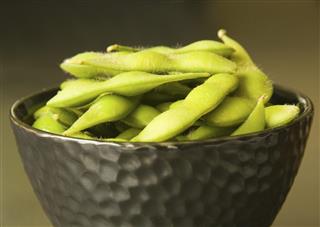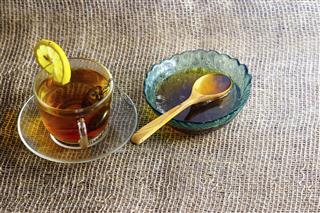
The best and the most nourishing foods are those that nature provides according to the needs of our body. Depending on the climate, seasons and other body specific factors, the foods must vary, if we are to stay healthy and free of diseases.
Have you ever noticed how lethargic our bodies become just as soon as the mercury rises? The appetite of a normal body fluctuates with variations in temperature and humidity. But most of us, conditioned by our habits and sometimes socially approved lifestyle, continue eating the same thing cooked in the same manner, month after month, day after day. The result is that our body cannot keep up with the natural changes of the environment, and vitality saps away.
The trick here is to listen to what the body has to say. If there is no appetite, eat nothing, nothing at all. The body is tying to tell you that your stomach has had to deal with increased temperature both within and outside the body, making it more difficult to churn food, draw out its juices. In addition, the heat is drying up moisture from the body, the skin is working overtimes, so is the liver and the glands responsible for maintaining the temperature within the body. Under these conditions, how fair would it be to load heating, energy producing foods into the system?
Ayurveda teaches us to differentiate between foods that are suitable for different climates and seasons. Each geographical area has its unique temperature, humidity and of course, the environmental conditions. Foods have to be classified likewise.
As we move across the spectrum of seasons, the hot, humid climates of summers almost everywhere on the globe to the mild, cool and drier climate of, say, autumn, our body needs different nutrition.
Food Recommended for Rainy Season
The rainy season follows the arid summers in most countries or in the tropics. Thousands of years ago the sages who wrote the Ayurveda estimated the effect of the chill of atmospheric water coupled with the acid of atmospheric compounds being washed down from the skies. The concept of acid rain, therefore, is not a modern one, and its effects on our system are also well documented. A warm cup of tea with honey on a cold rainy day is good for the system as well as for the nerves. Full grains like barley, wheat and rice are recommended to strengthen the digestion after the excesses of the summer season. Nourishing vegetable soups are another good meal.
Food Recommended for Summer Season
During summers, the problems we may face are associated with insect bites, maybe skin rashes in some countries, and sunburn with cracking of the skin.The foods for the summer have to be inherently cooling in nature, that with high moisture content. Zucchinis, cucumbers, sweet cool drinks like milk or thin buttermilk, rice, juicy fruits, tofu and other milk products are the right diet. Meats are best avoided, so are alcohols. Sour, oily or hot foods are a complete no-no. A very effective coolant for the stomach that also maintains the balance for digestive juices is aloe vera juice. In this weather, honey is the best sweetener, with its warm drying qualities that soothe the system.
Food Recommended for Autumn
As the autumn season approaches, crisp coolness pervades the air and the body once again starts perking up to greet the cold season, that of re-energizing and banishing lethargy of the wet and hot seasons past. At this time, everybody needs warm, moist, well lubricated foods, with emphasis on sharp tastes, sour, sweet and salty. Light food is, however, recommended, with emphasis on ground spices. Mildly fragrant spices, like cardamom find special favor.
Food Recommended for Winter Season
Autumn seeps into cold winters, seasonally the healthiest period of the year. The human body digests well at this time, and the mind and the heart are also very alert. Growth, enhancement of natural immunity and strengthening of the memory, bringing vitality to the lungs and the heart… all mark the winter season. In most people, cool climates are associated with aching joints, dry skin and digestive gas or nervous disorders. The foods to stick to at this time of the year are warm cooked grains, rice and oats, beans, heavier proteins like meats, hot teas, hot milk, and the list of soothing, comforting foods goes on. Winters are also the time for cough and excess mucus excretion from the body. This can be controlled by reducing mucus producing foods like bananas. It is not a co-incidence that most people put on an extra few pounds during the winters, after all, this is the time to insulate against cold and store for discomfort of the heat next year!!
Food Recommended for Spring Season
The melting of the snow, clearing of the mists and dulling of crisp air is brought about by the advent of spring, fresh and new in every way. It is the time when the stored energy of the heart is released. Spring is also the time for flu’s, fevers and viral infections. In most traditional cultures, it is the time for green tonic of the dark leafy greens….dandelions (good for the liver), and nettles (good for the kidneys) are a good choice. Ginger tea is the broth of the season, when literally, the body needs to spring clean the toxins accumulated over the winter months. The exercises vital for this cleansing are, activity, walking and never oversleeping!
Developing food habits that align one’s lifestyle with that of the changes of nature, is common sense, and that this is the best and healthiest way to live.










